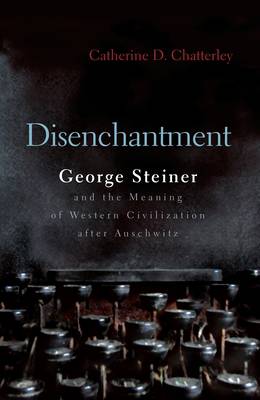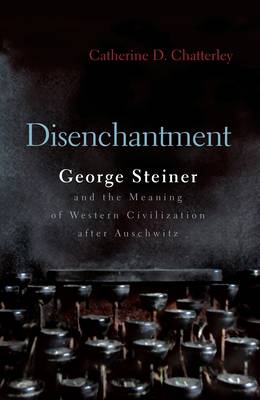
Bedankt voor het vertrouwen het afgelopen jaar! Om jou te bedanken bieden we GRATIS verzending (in België) aan op alles gedurende de hele maand januari.
- Afhalen na 1 uur in een winkel met voorraad
- In januari gratis thuislevering in België
- Ruim aanbod met 7 miljoen producten
Bedankt voor het vertrouwen het afgelopen jaar! Om jou te bedanken bieden we GRATIS verzending (in België) aan op alles gedurende de hele maand januari.
- Afhalen na 1 uur in een winkel met voorraad
- In januari gratis thuislevering in België
- Ruim aanbod met 7 miljoen producten
Zoeken
€ 30,95
+ 61 punten
Prijzen
Omschrijving
George Steiner has enjoyed international acclaim as a distinguished cultural critic for many years. The son of central European Jews, he was born in France, fled from the Nazis to New York in 1940, and became a naturalized U.S. citizen in 1944. Through his many books, voluminous literary criticism, and book review articles published in the New Yorker, the Times Literary Supplement, and the Guardian, Steiner has played a major role in introducing the works of prominent continental writers and thinkers to readers in North America and Great Britain.
Having escaped the Nazis as a child, Steiner vowed that his work as an intellectual would attempt to understand the tragedy of the Shoah. In Disenchantment, Chatterley focuses on Steiner's neglected writings on the Holocaust and antisemitism, and places this work at the center of her analysis of his criticism. She clearly demonstrates how Steiner's family history and education, as well as the historical and cultural developments that surrounded him, are central to the evolution of his dominant intellectual concerns. It is during the 1950s and 1960s, in relation to unfolding discoveries about the Nazi murder of European Jewry, that Steiner begins to study the effects of the Holocaust on language and culture, and then questions the very purpose and meaning of the humanities. The first intellectual biography of George Steiner, Disenchantment provides an invaluable contribution to literary and cultural studies.Specificaties
Betrokkenen
- Auteur(s):
- Uitgeverij:
Inhoud
- Aantal bladzijden:
- 200
- Taal:
- Engels
- Reeks:
Eigenschappen
- Productcode (EAN):
- 9780815609605
- Verschijningsdatum:
- 11/04/2011
- Uitvoering:
- Hardcover
- Formaat:
- Ongenaaid / garenloos gebonden
- Afmetingen:
- 154 mm x 244 mm
- Gewicht:
- 421 g

Alleen bij Standaard Boekhandel
+ 61 punten op je klantenkaart van Standaard Boekhandel
Beoordelingen
We publiceren alleen reviews die voldoen aan de voorwaarden voor reviews. Bekijk onze voorwaarden voor reviews.











